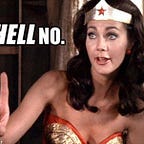Martin Luther King, Jr.’s Financial Advice to America
7 min readJan 21, 2019
Perspectives on MLK’s Ideas about Money
Personal finance is not the first topic that comes to mind when you ponder the legacy of Martin Luther King, Jr. But the great thinker, orator, man of God, and activist had quite a lot to say about the subject — and how it relates to the larger forces at work in American and global society.
